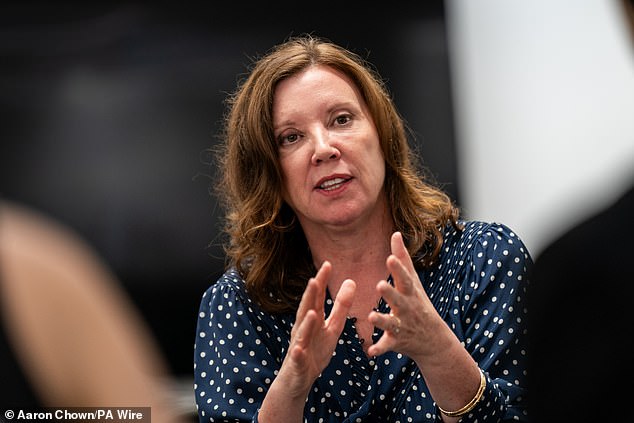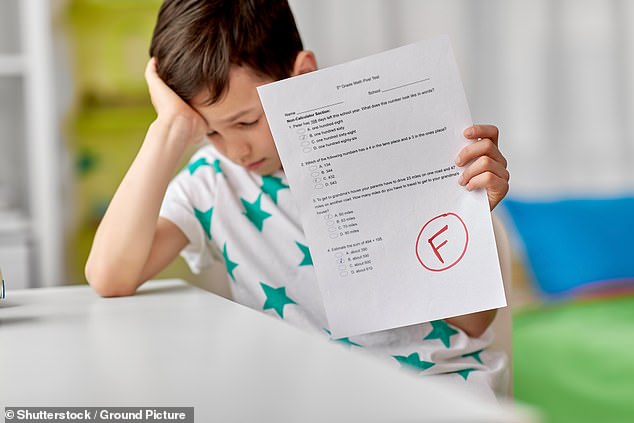Teachers are twice as worried about misogyny and sexism as they are about plummeting educational standards, a report by the Children’s Commissioner has found.
Dame Rachel De Souza will use a conference later today to say schools are more concerned about social issues than they are about instructing pupils in basic subjects such as English.
She will also reveal the majority of teachers are not worried about the curriculum and are more interested in funding for local government services such as health and housing.
Within the ‘Findings’ section of the 110 page report, she concludes: ‘Secondary schools were almost twice as worried about misogyny and sexism as curriculum.’
Dame Rachel, who was appointed to her post by the former Education Secretary Gavin Williamson in March 2021, will also say online safety is in the top four concerns for staff.
‘Schools are worried about problems beyond the school gate,’ the report finds.
‘Child and Adolescent Mental Health Services was a top four concern for 70 per cent of primary schools and 78 per cent of secondary schools.
‘More secondary schools are worried about the funding of wider services than they are about their own funding.’

Dame Rachel De Souza pictured has been the Children’s Commissioner since March 2021

Stock: Falling education standards are not as concerning for teachers as tackling sexism
In compiling her results, Dame Rachel attempted to contact every school in England, and asked them to report back their main concerns.
Roughly 90 per cent of schools responded to her questions, with results showing 81 per cent of teachers in secondary schools believe a lack of funding for social services is proving a barrier to pupils achieving the best grades.
While attendance at school was the top concern amongst secondary schools with 39,000 children not in school and receiving no education at all.
‘This is the single biggest issue facing the government, fixing the attendance crisis in our schools,’ Dame Rachel will add.
‘More than one in ten young people are consistently not in education, employment or training or NEET – so solving this is not just a moral imperative but an economic one.’
This comes as more than a third of pupils fail to achieve a GCSE pass in English and maths, and fewer than two-thirds of children say they enjoy school.
The report will also point out that nearly one million children were referred to mental health services, 95,000 youngsters had a parent in prison and 164,000 grow up in temporary housing.
The Children’s Commissioner will herald her findings as the ‘blueprint’ for the ‘next great wave of education reform’.











